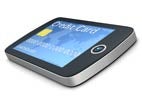The passing yesterday of Nelson Mandela, the last surviving political giant of the twentieth century, overshadowed everything else this week. It is interesting to note the role telecommunications played in the effectiveness of the protests against his incarceration and his subsequent release.
The trend of eliminating geography as a factor to communications has accelerated by orders of magnitude since those days, of course. The Mandela drama clearly pointed to the future.
In any event, worthwhile news and commentary abound on other fronts. Here are some highlights:
iBeacon Rolling Out
Apple’s iBeacon—the company’s answer to near-field communications (NFC)—is gradually being deployed. ZDNet reported this week that the technology is launching in 254 of its retail locations. The short range technology will provide information to shoppers, such as whether orders are ready and what upgrades are available. The story says that the platform can use Apple’s ticketing system.
This isn’t the first use of iBeacon. The story says that it has been tested at major league baseball stadiums for check-ins and to provide such things as video snippets and ticket availability information. It also is used by Exact Editions in London. In that use case, the system delivers information and offers related to magazine apps.
Great Britain Opens the Door to Huawei
In what may be a significant shift, Britain is set to clear Chinese telecom vendor Huawei to run a cyber-security center if it tightens spying rules. Previously, countries had shied away from dealing with Huawei for equipment that would contain sensitive material due to the vendor’s close relationship with the Chinese government. The government assessed Huawei and apparently was more or less satisfied with what it saw, according to Reuters:
That review, led by Prime Minister David Cameron’s national security adviser Kim Darroch, will give Huawei the all-clear, but will recommend tighter controls at the site, the person familiar with the issue told Reuters, without giving details of the extra checks.
The story highlights moves by the U.S. and Australian governments to limit the use of the gear.
Fiber Not Just for the Big Providers
Most of the headlines on advanced broadband networks are lavished on Google Fiber, FiOS and networks built by a select few other providers. But there are smaller and less well published networks. Indeed, there are quite a few of them.
The Herald, a regional news site headquartered in Panama City, Fla., which is in the Panhandle section in the northwestern part of the state, offered a story this week on the Florida Rural Broadband Alliance. The FRBA was funded with $24 million from the 2009 Federal Stimulus. It will bring a high-speed network— the story doesn’t specify precisely how fast—to counties in the Panhandle and the south central part of the state. It will be completed by the end of the year, the story says.
From Skepticism to Support for Google Glass
There isn’t too much high technology in this CIO piece on the reaction to Google Glass, but the anonymous writer does a nice job of explaining how he went from skepticism to being a Glass “Explorer,” or somebody who buys the gadget before general availability. The earlier versions are expensive—the writer shelled out $1,500 for a pair—and are likely outreached by the company to the kind of thought leaders that are invaluable in making the product succeed.
The writer makes the case for Google Glass in a couple of ways. For instance, he suggests that they actually are safer for driving than not using them. The rationale is that it will remove the temptation for drivers to fool with maps and GPS devices. He also provides a flavor for the interest being shown by people he ran into. He advises people to “keep the Tylenol handy,” though, because Google Glass requires users to look way up, continually, to see the superimposed images.
Still a BlackBerry Fan
And, finally, comes a story about something that most teenagers have but is out of reach of the president of the United States. CNET reports that Barack Obama is not allowed to have an iPhone for security reasons, though both his daughters own the Apple device.
The president still uses a BlackBerry, a bit of good news for the company that still is trying to find a path forward. CNET reports that Obama, speaking at a health care event for young people this week at the White House, made comments about his device use. The commentary in the piece suggests that the Secret Service may fear that the device would reveal POTUS’ location.
Obama’s struggle to keep his BlackBerry was well documented at the beginning of his administration.



